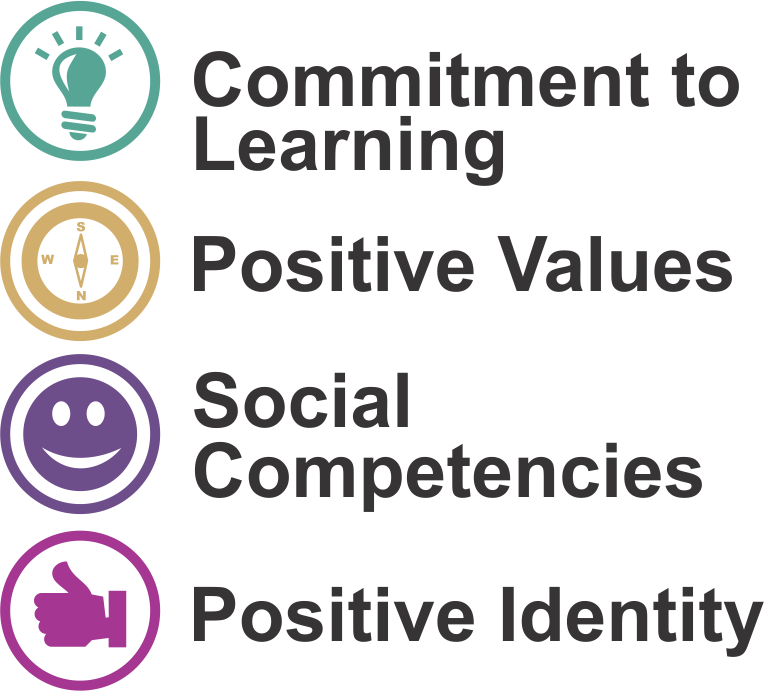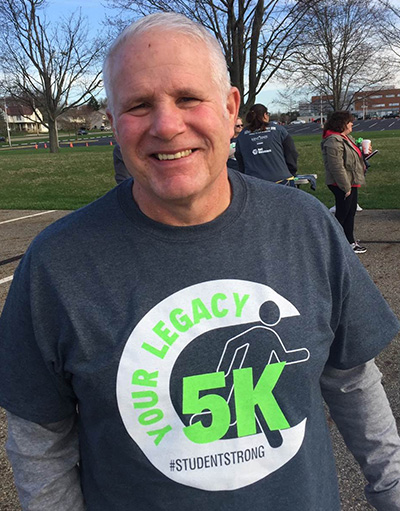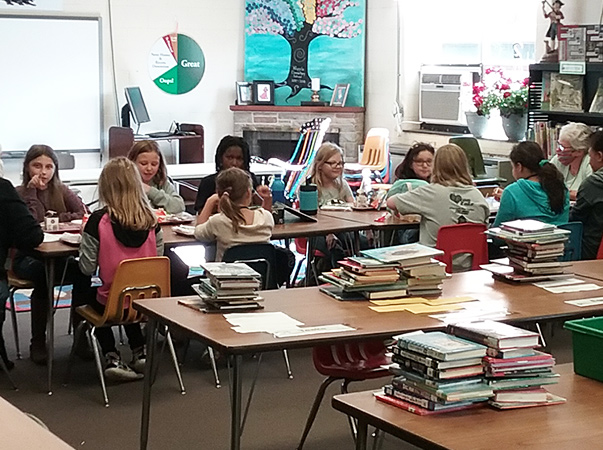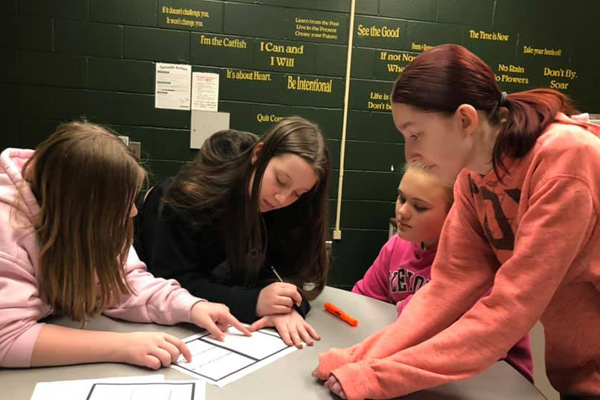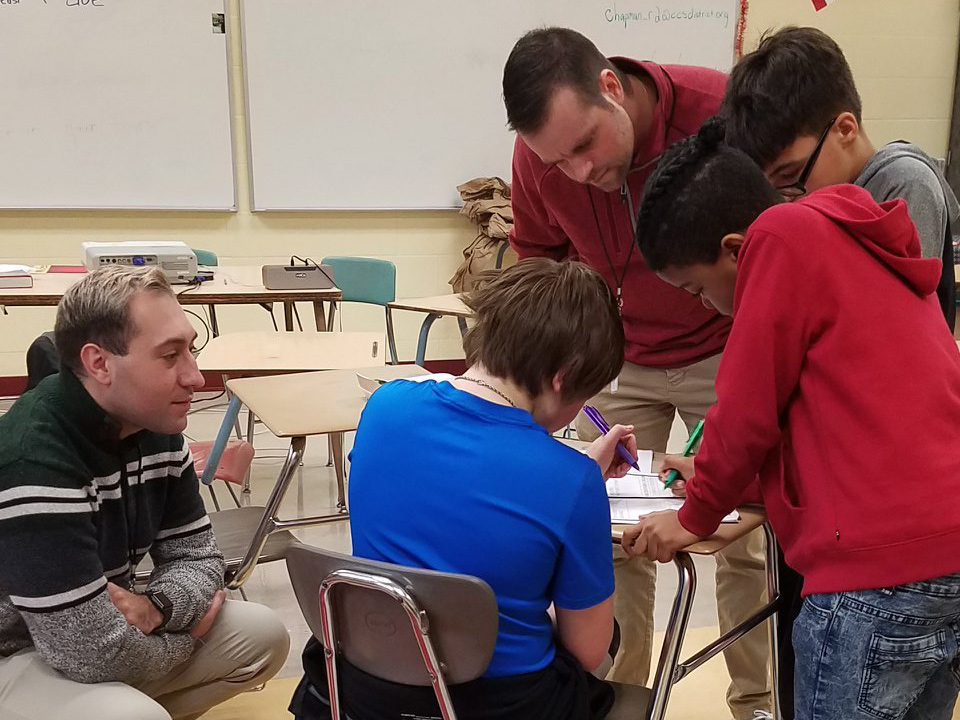OUR HISTORY
Eugene Lingenhoel, Founder, had a dream 30 years ago about opening an orphanage. While working his full-time sales career and serving as a local pastor, he was contacted by Lehman Middle School in Canton, Ohio, to fill backpacks for students in need.
When he delivered these supplies, the principal asked him to visit with several of the students who could benefit from interacting with a positive role model.
After seeing a great need and knowing he could make a difference, he left his career and started mentoring full-time at Lehman Middle School.
At that point, he hired our Executive Director, Jenn Warner, who developed our curriculum. Together, they began recruiting other adult volunteer mentors and have since grown the program into what it is today.
The Legacy Project of Stark has served approximately 3500 students alongside 800 volunteer mentors in and around Stark County schools since 2015.
WHY WE ARE HERE…
The Legacy Project of Stark exists to bring together and build small group mentoring relationships between Kindergarten through 12th grade students and members of their community.
We believe that developmental relationships promote resiliency, emotional well-being, and the social skills that students need to thrive.
All of our programs are designed to reduce barriers like cost, transportation, and time of day that students and families may experience when seeking out mentorship.
Through our curriculum, we are able to encourage smart decisions, responsible academic performance, and positive behavior modifications.
We believe that EVERY student can benefit from having a mentor!
SOCIAL AND EMOTIONAL LEARNING…
Let’s face it, we live in a stressful world. Our children are having to cope with emotional realities that cannot be ignored. Social and emotional learning is a type of teaching skill designed to help children learn how to understand and deal with their emotions, attitudes, and behaviors in a way that will help them succeed in life.
According to the Collaborative for Academic, Social, and Emotional Learning (CASEL), an organization that works toward integrating social-emotional learning for preschool through high school, “social and emotional learning (SEL) is the process through which children and adults acquire and effectively apply the knowledge, attitudes, and skills necessary to understand and manage emotions, set and achieve positive goals, feel and show empathy for others, establish and maintain positive relationships, and make responsible decisions.”
Social and emotional learning consists of five categories that include self-awareness, self-management, social awareness, relationship skills, and responsible decision-making skills.
Children spend 30+ hours each week in an academic setting where passing state testing is the main focus. While social and emotional learning provides tools to help them understand how to cope with stress and foster an outlet for social interactions, The Legacy Project of Stark believes students from all walks of life can benefit from having our program as part of their academic curriculum.
With the uncertainty of the recent pandemic, now more than ever, children need to learn specific tools that can help them understand their attitudes and how they can live their best lives possible.
The Legacy Project of Stark believes every student needs a mentor and utilizes these tools to help every one of them succeed.
40 DEVELOPMENTAL ASSETS
Search Institute® has identified 40 building blocks of healthy development—known as Developmental Assets®—that help young people grow up healthy, caring, and responsible. These building blocks offer positive strengths that children need to succeed.
Studies show the greater number of assets a child has, the less likely that child will encounter teen pregnancy, substance abuse, delinquency, or violent acts.
External Assets focus on relationships with families, schools, and communities. They are built upon positive experiences encountered through those relationships in a child’s life.
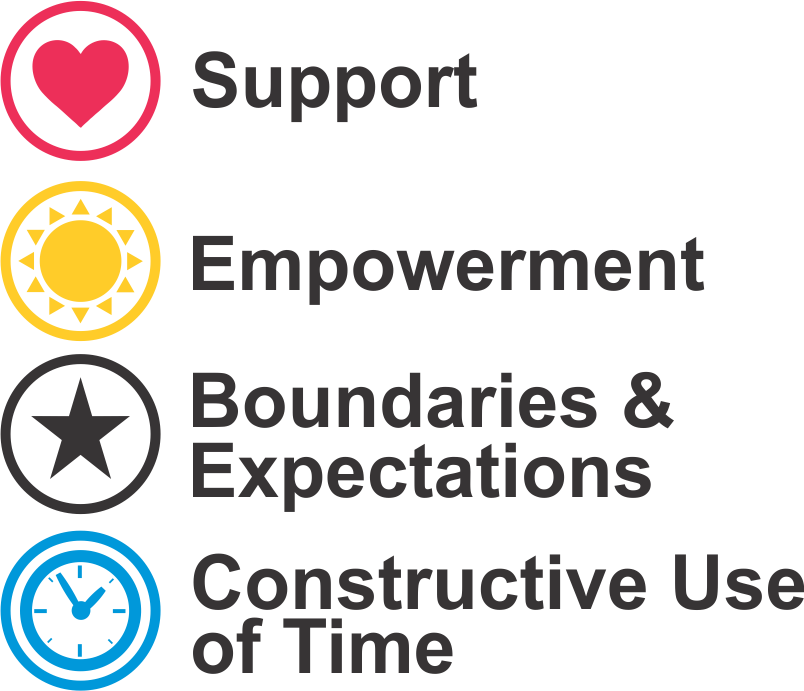
Internal Assets focus on social-emotional strengths, values, and commitments that are fostered in young children. These assets guide positive choices that develop a sense of confidence and purpose about themselves.
Both External and Internal Assets consist of preventative measures, positive experiences, and valuable qualities children need to buffer them from risk as they continue through to adulthood.
The Legacy Project of Stark utilizes Search Institute’s 40 Developmental Assets when developing curriculum for each weekly encounter between mentors and their groups.
